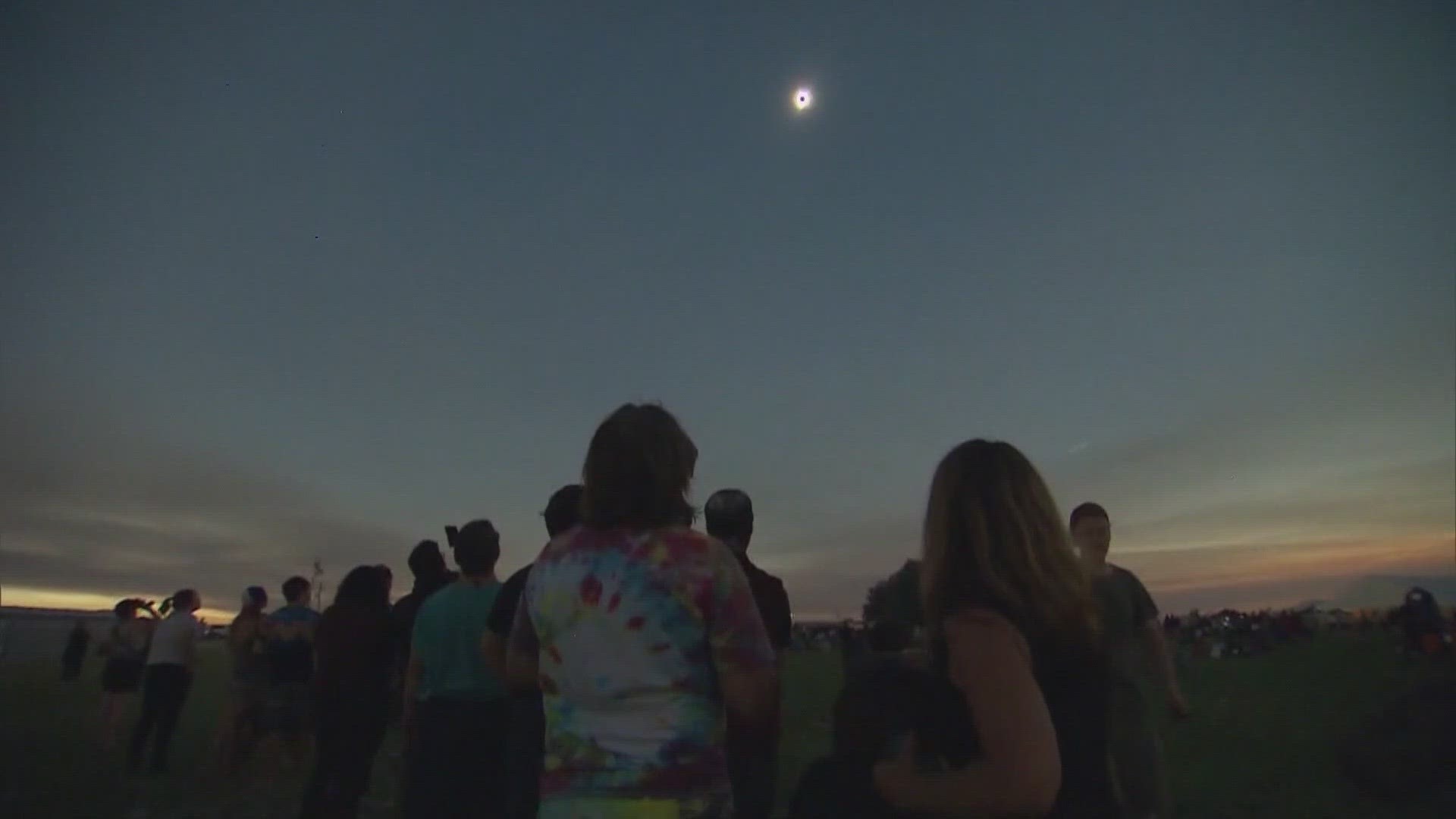COLUMBUS, Ohio — The total solar eclipse is still more than a month away, but the pressure is on for those working behind the scenes to make sure that day goes off relatively smoothly for people looking to enjoy the event.
While Columbus and most of Franklin County won’t see totality during the eclipse, Columbus Public Health is making arrangements for the day and what could come through the city.
The Tuesday board meeting of Columbus Public Health focused on what has been done and what needs to be done.
“The local population in those centerline communities could triple or quadruple. All of the demand for hotels, campsites, restaurants, food and gas could be reaching its potential limit that day,” said Leslie diDonato, director of the Office of Emergency Preparedness Response for Columbus Public Health.
Ohio is within a day’s drive for 70% of the country’s population. While not that many people will be traveling to the state, it’s safe to predict there will be some tourists traveling to watch the eclipse.
diDonato said during the 2017 total solar eclipse, Columbia, South Carolina planned for 400,000 visitors and ended up with 1.6 million. It was the opposite in portions of Kentucky where a city planned for 400,000 but only saw 300,000.
She said traffic will be the main point of concern, drawing from information she has from 2017.
“In reality, traffic congestion was really only a problem after the eclipse. We have a coworker who drove from here to the Kentucky for the eclipse. He said he spent three hours in the car going to the eclipse and 17 hours getting home,” she said.
Then, there’s the concerns about traffic and emergency services.
Will people be able to get to and from hospitals during the solar eclipse?
She said Mount Carmel is planning on sending a mobile medical unit to Hardin County for a couple days to act as a “field first aid” station. Nationwide Children’s Hospital is also considering increasing staffing at its clinics along the path of totality.
Columbus Public Health will start ramping up its messaging in the coming weeks.
A lot of that messaging will parrot what is coming from Ohio Emergency Management: arrive early and stay late. Make the day and event. It will also focus on the need for sets of eclipse glasses to view the eclipse.
“It’s not just sunglasses. It’s not the glasses you wear. They are special eclipse glasses you need to get your hands on to watch the eclipse,” said Dr. Mysheika Roberts, director of Columbus Public Health. “You could really damage your eyes permanently.”
Roberts said since Columbus isn’t in the path of totality, traffic won’t be as big of a concern as it will be for the more rural counties that fall into path of totality, including the nine counties along the center line of the path.

